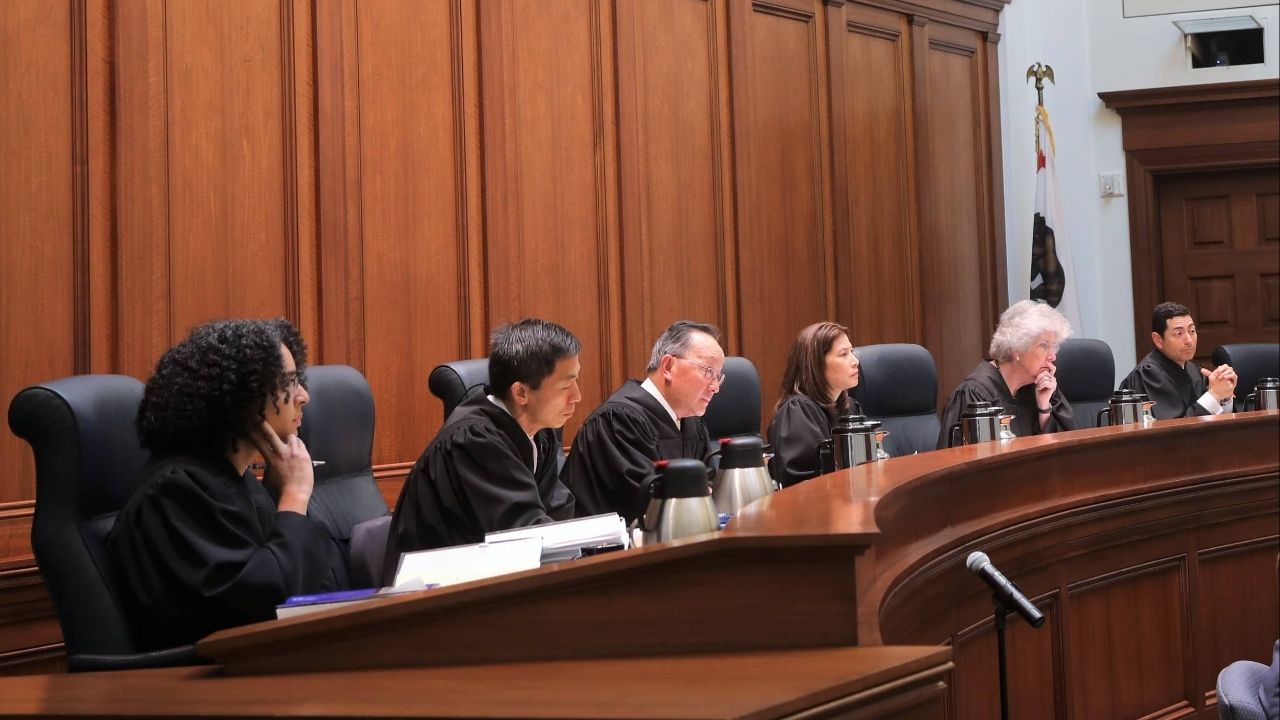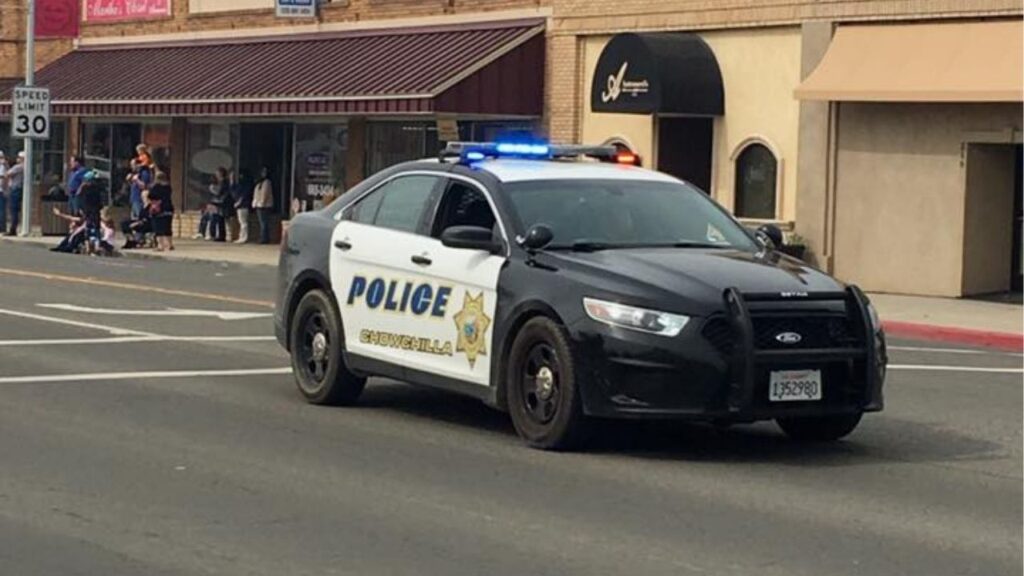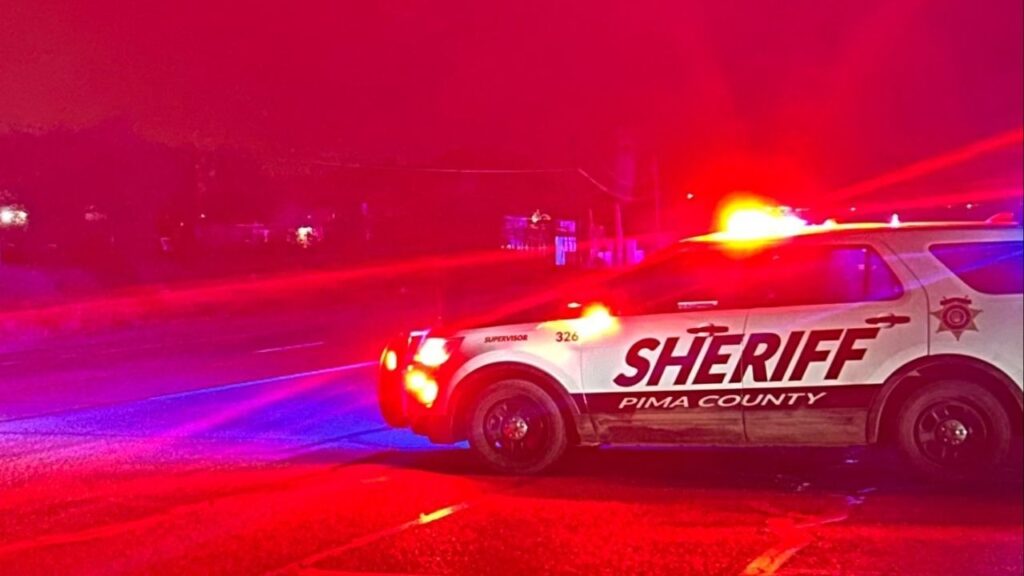
- California Supreme Court makes two decisions that could impact decades of sentencing for gang-related offenses.
- The decisions allow thousands of inmates to petition courts to reexamine their cases.
- Gang enhancements and three-strike sentences date back to when California’s crime numbers were high in the late 1980s and early 1990s.
Share
|
Getting your Trinity Audio player ready...
|
This story was originally published by CalMatters. Sign up for their newsletters.
The California Supreme Court handed down two decisions last week that could impact decades of sentencing for gang-related offenses and allow thousands of people to petition courts to reexamine their cases.
Both rulings turned on a 2021 law that raised the standard of evidence for proving that someone broke a law as part of “criminal street gang activity.” In different ways, the Supreme Court chose to apply the new standard to past convictions.
One decision took an incarcerated person off Death Row; the other sided with two incarcerated people who contested past “strikes” on their records that set them on course for lengthy sentences.
It’s uncertain how far-reaching the two rulings will be. Both of them came in split decisions, reflecting disagreements about how to apply the 2021 law retroactively.
In one case, a 4-3 majority determined that prior gang-related charges did not hold up under new legal standards and thus could not be used as strikes.
Larry Fletcher and Eric Anthony Taylor Jr. argued that 2015 gang enhancement convictions could not be applied as “strikes” toward a three-strikes sentence for a 2020 attempted murder, as their convictions were still under appeal when the 2021 law went into effect.
The California Supreme Court ultimately agreed and vacated the 2015 prior convictions as gang-related and therefore offenses that no longer counted as a “strike” — remanding the trial court to potentially retry them under the new law’s redefined elements of gang offenses and enhancements.
It remains unclear exactly how far the Fletcher and Taylor decision will set precedent for other individuals looking to reverse life sentences under the “three strikes” law.
Chief Justice Patricia Guerrero dissented from the decision. She warned that applying the gang enhancement law to past strikes would set a legal standard that would be “virtually impossible to meet”.
She admonished her fellow justices for invoking “the authority to change the Three Strikes law under the guise of interpreting it.”
Overturning a Death Sentence
A second case, ruled on Thursday, upended a defendant’s death sentence and remanded his case back to trial court.
The case was decided 5-2, upholding Jason Aguirre’s 2009 murder and attempted murder convictions, but sending it back to trial court in Orange County for what the court described as “further proceedings.” Both the majority and dissenting opinions said they would have reversed the defendant’s gang enhancements.
Aguirre was a late-20s white man who prosecutors allege hung out with a Vietnamese youth gang called the Dragon Family Junior in Orange County.
One night in 2003, he and a few younger accomplices chased a group of people from a restaurant to a cul-de-sac where members of the group crashed their car. Aguirre shot three of them, and one, 13-year-old Minh Tran, died.
At trial, a detective testified that Aguirre shot three people for the reputational benefit of the gang. At the time, that was a valid reason for a prosecutor to pursue gang enhancements to a defendant’s sentence.
But the 2021 law changed that. Now, the law says that gang enhancements have to show that any benefit the gang received from criminal activity has to be “‘more than reputational.”
“Understandably, given when the trial below took place, defendant’s jury was not given instructions that track the revised language of (the 2021 law),” Guerrero wrote in the majority opinion.
“With the relevant aspects of Assembly Bill 333 (the 2021 law) applying retroactively, this disconnect with the law as it has since been amended constitutes error affecting defendant’s conviction for active participation in a criminal street gang.”
Gang Enhancements in Tough-on-Crime Era
Gang enhancements and so-called three-strike sentences date back decades, to when California’s crime numbers were peaking in the late 1980s and early 1990s.
State legislators in 1988 enacted the Street Terrorism Enforcement and Prevention (STEP) Act in response to rising gang crime and violence, notably most visible in Los Angeles neighborhoods.
Participation or association with an alleged gang or gang members became highly subjective criminal acts that added sentencing enhancements for felonies committed “to benefit a criminal street gang.”
Then, during the era of the so-called “super predator,” voters in 2000 approved Proposition 21, which expanded the provisions of the STEP Act and increased mandatory sentencing for gang-related crimes.
Over the next two decades, local prosecutors in California pursued allegations of criminal street gang activity for both violent and nonviolent felony charges.
Critics, activists and reform advocates argued that gang allegations and gang enhancements disproportionately and unfairly targeted defendants from minority and low-income communities — and that low thresholds of evidence led to prejudiced juries, resulting in disproportionately severe sentences, primarily for people of color.
In 2021, the STEP Forward Act — legislation authored by then-Assembly member Sydney Kamlager-Dove of Los Angeles — attempted to address the inequities and excessive punitive impact of the original STEP Act and its amendments. The STEP Forward Act is the law at the center of the two new California Supreme Court rulings.
It substantially changed the criteria by which convicted felonies could be categorized as gang-related or established as a “pattern” of gang activity, and further required courts to honor a defense request for separate proceedings to determine such gang allegations.
“Current gang enhancement statutes criminalize entire neighborhoods historically impacted by poverty, racial inequality, and mass incarceration as they punish people based on their cultural identity, who they know, and where they live,” the bill stated.
This article was originally published on CalMatters and was republished under the Creative Commons Attribution-NonCommercial-NoDerivatives license.
RELATED TOPICS:
Categories

Pentagon to Send 200 Troops to Nigeria




















